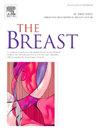Adverse health effects after breast cancer up to 14 years after diagnosis
IF 5.7
2区 医学
Q1 OBSTETRICS & GYNECOLOGY
引用次数: 0
Abstract
Background
The number of breast cancer survivors increases, but information about long-term adverse health effects in breast cancer survivors is sparse. We aimed to get an overview of the health effects for which survivors visit their general practitioner up to 14 years after diagnosis.
Methods
We retrieved data on 11,495 women diagnosed with breast cancer in 2000–2016 and 23,242 age and sex matched controls from the PSCCR-Breast Cancer, a database containing data about cancer diagnosis, treatment and primary healthcare. We built Cox regression models for 685 health effects, with time until the health effect as the outcome and survivor/control and cancer treatment as predictors. Models were built separately for four age groups (aged 18/44, 45/59, 60/74 and 75/89) and two follow-up periods (1/4 and 5/14 years after diagnosis).
Results
148 health effects occurred statistically significantly more often in survivors than in controls (p < 0.05). Health effects varied by age, time since diagnosis and treatment, but osteoporosis, coughing, fatigue, skin and urinary infections, were statistically significantly increased in breast cancer survivors. Osteoporosis and chest symptoms were associated with hormone therapy; osteoporosis and skin infections with chemotherapy and lymphedema and skin infections with axillary dissection.
Conclusions
Breast cancer survivors may experience numerous adverse health effects up to 14 years after diagnosis. Insight in individual risks may assist healthcare professionals in managing patient expectations and improve monitoring, detection and treatment of adverse health effects.
求助全文
约1分钟内获得全文
求助全文
来源期刊

Breast
医学-妇产科学
CiteScore
8.70
自引率
2.60%
发文量
165
审稿时长
59 days
期刊介绍:
The Breast is an international, multidisciplinary journal for researchers and clinicians, which focuses on translational and clinical research for the advancement of breast cancer prevention, diagnosis and treatment of all stages.
 求助内容:
求助内容: 应助结果提醒方式:
应助结果提醒方式:


